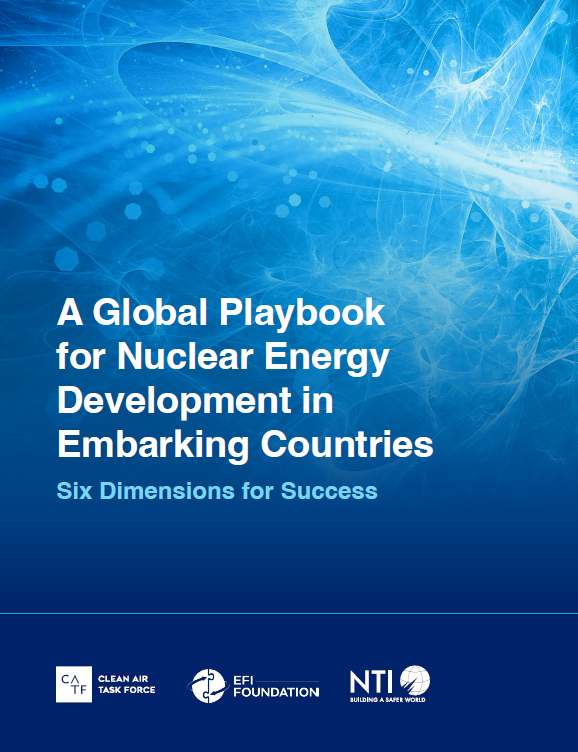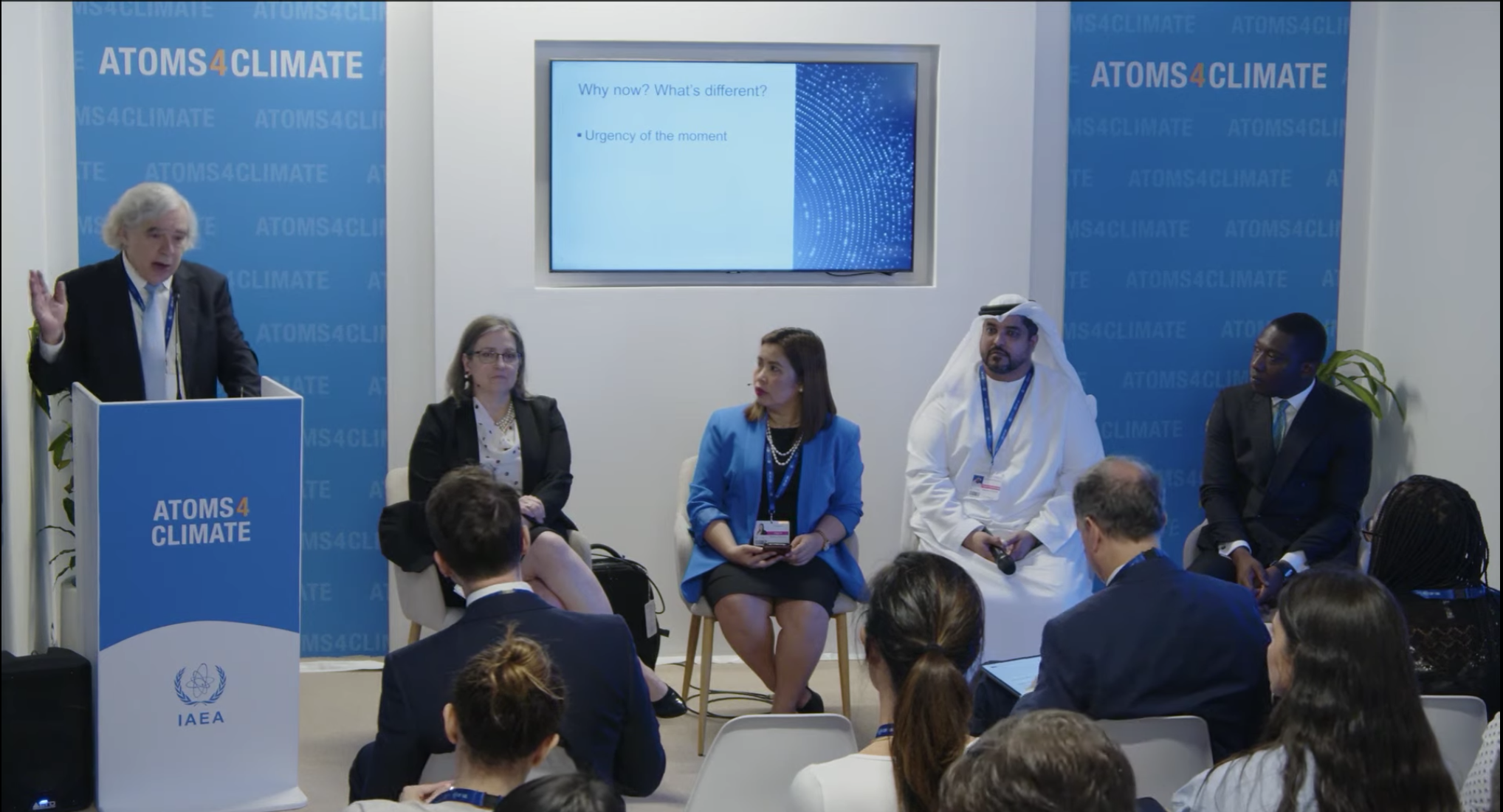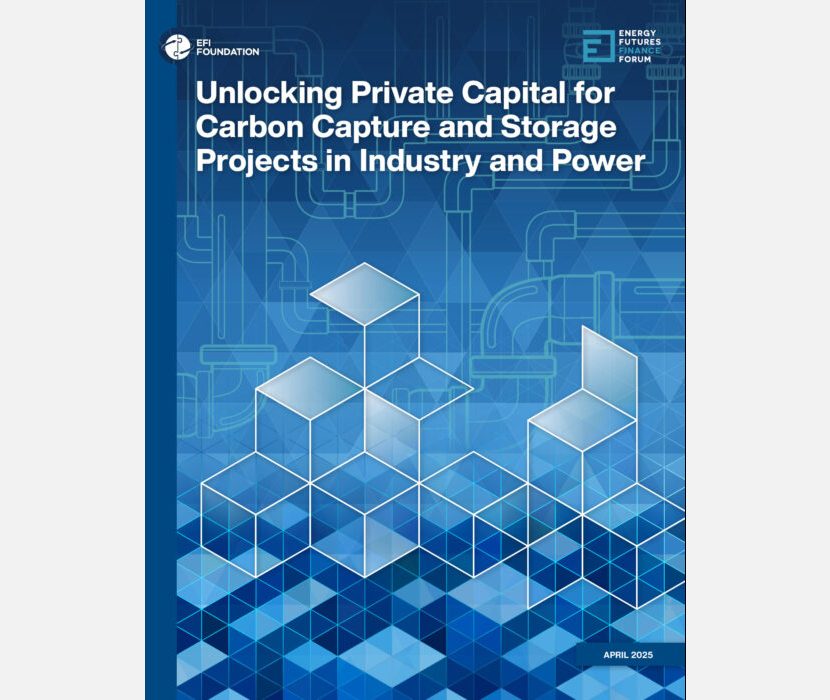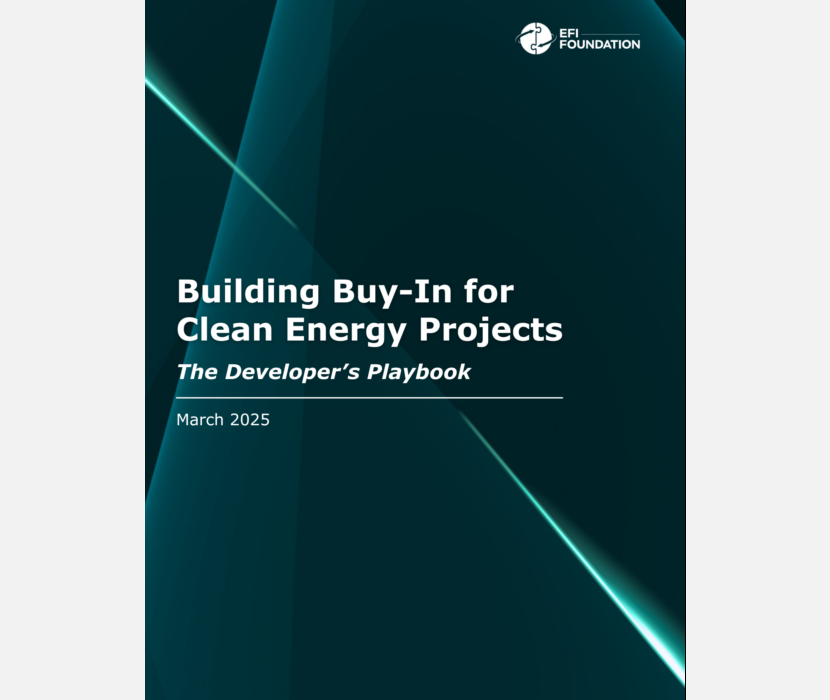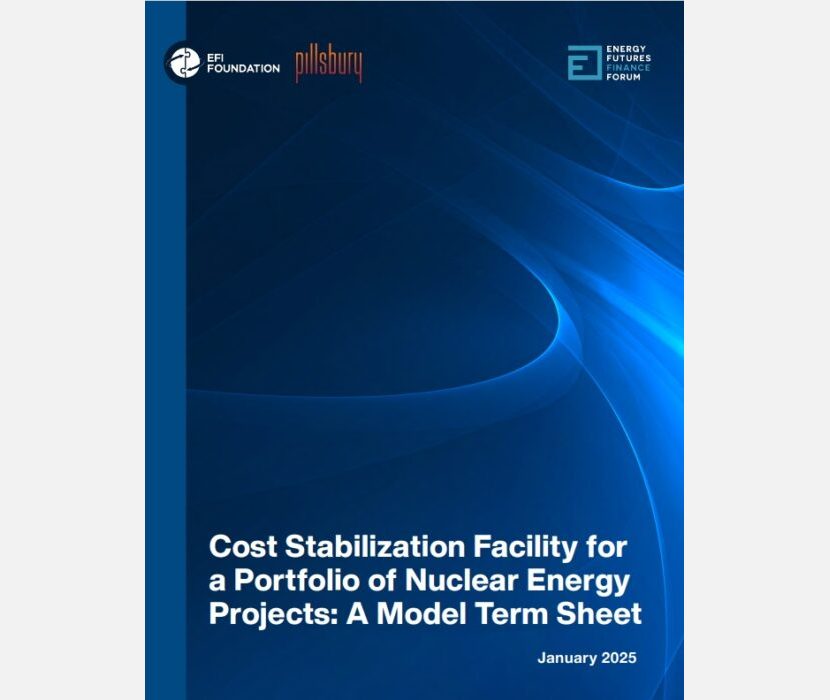A Global Playbook for Nuclear Energy Development in Embarking Countries: Six Dimensions for Success (December 2023) outlines pathways for the responsible, sustainable, and effective development of new nuclear energy projects and industries across the globe in diverse countries. Mitigating climate change, improving energy security, and creating the conditions for social progress through sustainable economic growth are interrelated challenges—and nuclear energy can play a pivotal role in addressing these and other issues. The Playbook identifies six key dimensions that must be considered together in an options-based approach for any new nuclear energy project.
The Playbook is a collaboration of the EFI Foundation, Clean Air Task Force, and the Nuclear Threat Initiative. It focuses on opportunities for countries that currently do not have commercial nuclear reactors—these are referred to as “embarking” countries by the International Atomic Energy Agency.
The aim of the Playbook—recognizing that embarking countries will have different priorities, capabilities, and needs—is to identify pathways to responsibly and effectively develop nuclear energy programs based on the six core dimensions that can align with broader national goals.
To meet the world’s growing energy demand while combating climate change, massive electrification of all sectors of the world economy is essential. Nuclear energy could be a major source of abundant, continually available, zero-carbon electricity and thermal energy to meet this demand. It could contribute significantly to industrial decarbonization, replacing fossil fuels in the production of high-quality heat—a new application of nuclear energy in both embarking countries and those with established nuclear industries.
Growing recognition of the potential for nuclear energy to help address climate change and provide low-carbon energy presents a distinct opportunity to craft a global strategy around deploying new nuclear projects and technologies in embarking countries. Any approach to scaling nuclear energy will need a comprehensive approach to help these countries chart their individual nuclear journeys.
The Playbook details measures that can be taken now to support new nuclear development and outlines the need for new international institutions to sustainably finance and successfully scale new nuclear energy projects globally. It emphasizes the need for an options-based approach, considering the unique challenges and opportunities specific to each country.
The Playbook offers insights on cross-cutting themes and challenges, and it draws heavily from best practices observed over multiple decades of experience with civilian nuclear energy development around the world. But it is—by design—not prescriptive. It is organized around the following six key dimensions that are imperative to any successful new nuclear development:
- Project Execution: Nuclear project execution is complex, involving numerous activities, tasks, and processes that need to be carried out to construct, commission, and operate a nuclear facility. Capacity building for project execution is critically important in embarking countries to efficiently use scarce resources, avoid or at least mitigate the development and construction challenges of the past, and build momentum and support for nuclear projects.
- Regulatory System: Establishing a robust nuclear regulatory regime is of paramount importance for sustaining a nuclear industry, particularly for an embarking nuclear country. Such a regime serves as a cornerstone for safe and responsible nuclear development, ensuring the well-being of both the public and the environment. Embarking countries face regulatory development challenges because key considerations surface when implementing a regulatory system and several options emerge for doing so.
- Project Bankability and Finance: Market-only mechanisms to finance nuclear projects are insufficient; national governments must play an active role at the outset of a nuclear program. A first challenge is creating the economic conditions to attract sufficient capital for successfully planning, building, operating, and decommissioning nuclear energy facilities. Enabling business models that effectively leverage public and private resources is a key task for public administrators. Three principles to increase the bankability—or investment quality—of new nuclear projects in embarking countries should guide these efforts: (1) minimize and contain project costs; (2) minimize the cost of capital; and (3) support adequate revenue models.
- Nuclear Nonproliferation and Security: Security and nonproliferation are necessary foundations for a global expansion of nuclear energy. As countries consider nuclear energy options, they face decisions that bear on nonproliferation and nuclear security, including (1) choice of reactor design, fuel type, and fuel cycle; (2) acquisition of nuclear fuel; (3) security; and (4) application of international safeguards and transparency measures. On each of these issues, adherence to international best practices and standards will help clear the path to successful nuclear energy development.
- Spent Nuclear Fuel: The siting of permanent disposal sites for spent nuclear fuel is an important goal that nuclear power stakeholders must work toward; in addition, a responsibility exists to safely manage these wastes in interim storage while progress toward a permanent disposal solution continues. These imperatives have proved challenging for many of the countries with advanced nuclear energy programs. Although this process can seem complex, spent nuclear fuel can be managed safely, securely, and economically with appropriate effort. Countries that are embarking on nuclear energy programs can forge a path to success by considering three key aspects: permanent spent fuel disposal, timeline for considering disposal options, and interim spent fuel storage.
- Workforce Development: Workforce development is foundational for countries embarking on new nuclear energy projects. But the specialized workforce requirements can turn staffing into a choke point. Embarking countries face common, global workforce challenges, as well as acute constraints particular to new entrants. As its nuclear program matures, an embarking country must decide whether roles will be outsourced or insourced. Embarking countries are highly likely to rely on both foreign and domestic talent, but there exists a range of possible combinations. Countries should choose a workforce model that fits their own resources and goals, and back up their decisions with financial investment.
The recommendations apply to any nuclear technology that can meet prudent finance, regulatory, and nonproliferation models. The Playbook emphasizes the importance of tailoring strategies to the unique contexts of individual countries to ensure responsible nuclear energy expansion. It highlights the potential for shared benefits and synergies between embarking countries and nations with existing nuclear power as the world looks to scale nuclear energy to address climate change and meet growing demand for abundant, low-carbon energy.
The Playbook devotes considerable attention to the question of what form new international institutions might take and what benefits they might provide—not only to embarking countries but also in nations that already have operating nuclear plants. Embarking countries can make an especially strong case in calling for the formation of these new institutions. Recognizing that this may take some time, the Playbook offers recommendations for what can be done in the near term—even without new institutions. Much progress can be made now, while additional supportive institutional infrastructure is developed collaboratively in parallel.
Supplemental Material
(Share this post with others.)


